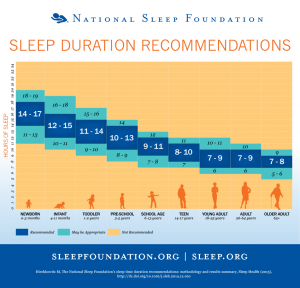 Panic and anxiety can be challenging to live with and cope with, especially during acute episodes. Because of the nature of these different states, different individuals respond to different techniques to cope or manage these situations. This blog will provide some different techniques that may help some individuals to calm down from an acute panic/anxiety episode. That being said, this blog is not meant to replace any medical advice you may have been given by your health care provider, so please make sure to consult your health care provider before attempting these at home. In fact, some of these techniques could actually make someone feel worse, so please once again do not attempt any of these without seeking medical advice. Also, if you have a pre-existing condition that makes you susceptible to these types of acute states, please consult professional medical advice, whether it is a naturopathic doctor, counsellor, family doctor, psychologist, etc., to better prepare an emergency plan to best fit your needs.
Panic and anxiety can be challenging to live with and cope with, especially during acute episodes. Because of the nature of these different states, different individuals respond to different techniques to cope or manage these situations. This blog will provide some different techniques that may help some individuals to calm down from an acute panic/anxiety episode. That being said, this blog is not meant to replace any medical advice you may have been given by your health care provider, so please make sure to consult your health care provider before attempting these at home. In fact, some of these techniques could actually make someone feel worse, so please once again do not attempt any of these without seeking medical advice. Also, if you have a pre-existing condition that makes you susceptible to these types of acute states, please consult professional medical advice, whether it is a naturopathic doctor, counsellor, family doctor, psychologist, etc., to better prepare an emergency plan to best fit your needs.
Ways to Calm Down
- Get out of the situation – This suggestion is not always possible, but if it is and can be done safely, attempt to get out of the situation you are in. This may not be best for everyone though, especially for individuals who are in the process of working through their anxiety. Being in an uncomfortable situation may be necessary for healing in their particular case.
- Pray – Prayer can divert one’s focus from the problem to a solution, which can be helpful in these types of episodes.
- Deep Breathing – For some, focusing on their breath during an acute attack can make the situation worse. However, for some individuals, it helps them to re-center and re-gather themselves.
- Exercise – Even a short walk can help get your focus off of the situation at hand. In addition, exercise changes the activity in our brains and can actually help some to enter a relaxed state.
- Literally get up and change seats, attempting to look at the situation from a different angle – When we get up and change our position, it changes the activity in our brains and allows us to literally see things from another perspective. In some situations, this may be enough to help us to re-gather and re-focus.
- Drink a Calming Tea – Making a calming tea like chamomile can help us to physically reset to a calmer state.
- Laugh – This last suggestion is easier said than done. However, laughing can help change the atmosphere that we have created or entered from tension to joy. This might involve reading some jokes online or watching a funny movie. Whatever it is, attempt to surround yourself with joy and laughter.
Have you benefitted from reading this blog? Know someone that would benefit as well? Share, Like, Comment, or Tweet this article, and let me know what you think.
Some of the information provided above may not be appropriate for everyone, please consult with your doctor before trying any of the above. If you are interested in Naturopathic Medicine and wanting a different approach to your health care needs, contact Elisha Cook via the contact portion of this website.



